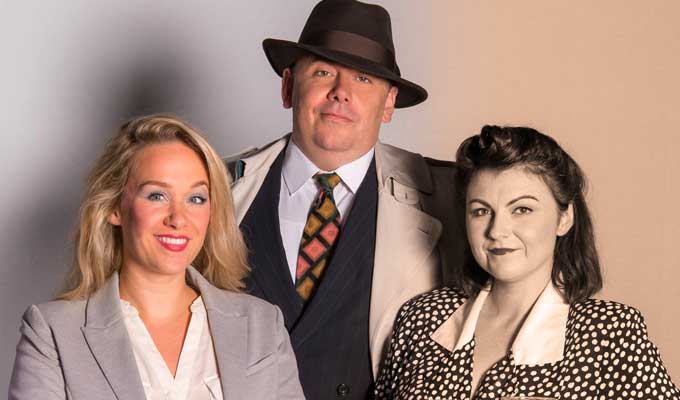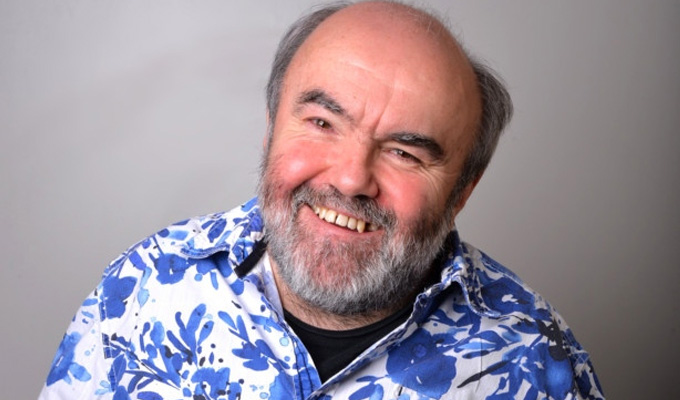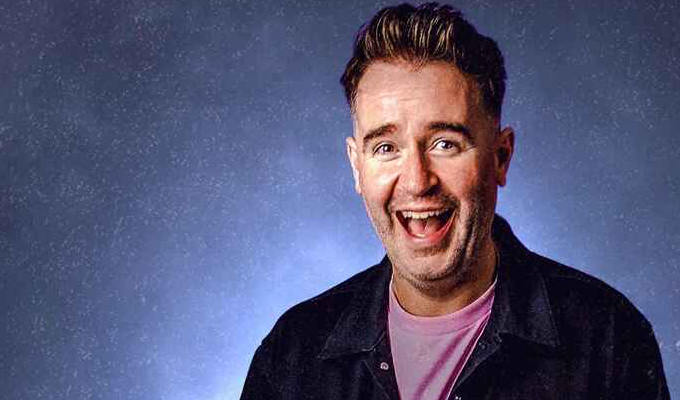
Goodnight Sweetheart: The Musical
Note: This review is from 2018
Review by Steve Bennett at the Brookside Theatre, Romford
Goodnight Sweetheart always had the most peculiar of premises: that unambitious TV repairman Gary Sparrow could freely travel through a time portal to cheat on his wife of the 1990s with another married woman in Blitz-hit wartime London.
Now creators Laurence Marks and Maurice Gran have turned their sitcom into a stage musical, currently being given a small-scale run-out in a tiny Essex theatre in the hope of landing a West End run next year – and it’s even more bizarre than the original.
For even though the decade most closely associated with the show is the 1940s, they have made it into a jukebox musical featuring as many hits from the 1980s than anything else, thanks to the decision to move the ‘contemporary’ setting backwards a decade. It is also a highly clichéd version of the 1980s, mostly set in a gym so everyone can wear Dayglo lyrca and Frankie Says T-shirts, while there’s the obligatory gag about mobile phones being the size and weight of a breeze block.
Yes, there are some wartime ditties such as the title track, London Pride and Boogie Woogie Bugle Boy, but the soundtrack is dominated by karaoke-friendly synth pop – with most tracks jemmied in with little subtlety. The gag from the TV show, that in the past Gary can pretend to have written mega-hits that have yet to be recorded, could have given natural reason to revive classic tunes, but it’s only used once, for Elton John’s Your Song.
Instead when Gary explains his predicament to best mate Ron, we get a rendition of Addicted To Love (a generous explanation for his actions to say the least); a scene in which he gets fitted out with 1940s clobber exists only as an excused for Sharp Dressed Man; and Sisters Are Doing It For Themselves comes after no greater feminist act than the women bitching about their husbands. (This is not a show that would pass the Bechdel test).
That the show uses already existing hits means the songs almost never advance the story, yet take up so much time there’s very little left for plot. So the drama seems abrupt and the romance never really convinces. And while there are jokes, it’s rarely an out-and-out funny production, given that it’s hard to play for laughs when your backdrop is carpet-bombing of civilians.
Gary does have some qualms about the morality of what he’s doing, although his wife Yvonne is portrayed as something of a shrew, so that’s all right then. While the husband of Phoebe, the barmaid of the Royal Oak who he falls for, is likewise depicted as a bit of a brawler.
In an endearing performance, Jai Sepple – who also produced and directed this show – makes Gary as sympathetic as Nicholas Lyndhurst did, far more soppy than deceitful. And Kirsty Cherrett was equally warm as Phoebe, and boasting a noteworthy singing voice too.
However, that wasn’t the case across the cast, with missed keys and flattened notes galore. Steven Crouch who played Ron is definitely no singer, while David Ward, as the mysterious man who holds the key to the portal, absolutely massacred Tainted Love. Kudos to Jonny Buxton, though, who did a charmingly cheery old-school comic turn to Accentuate The Positive as amiable 1940s copper Reg Deadman. That was another sign that this was the nostalgia the show should have explored, not the over-mined 1980s.
There are obvious budget limitations of performing a full-cast show in a 200 seater, and at times this production felt amateurish. Not least in the dance moves: there has been tighter and more energetic choreography in primary school end-of-term shows.
But this is clearly a run designed as a work in progress for the big league, and Marks and Gran might have their work cut out there. Not least because the payoff was the most disappointingly flip way of wrapping up a story that was always going to prove difficult to conclude. Their solution is likely to leave audiences dissatisfied.
Review date: 20 Sep 2018
Reviewed by:








